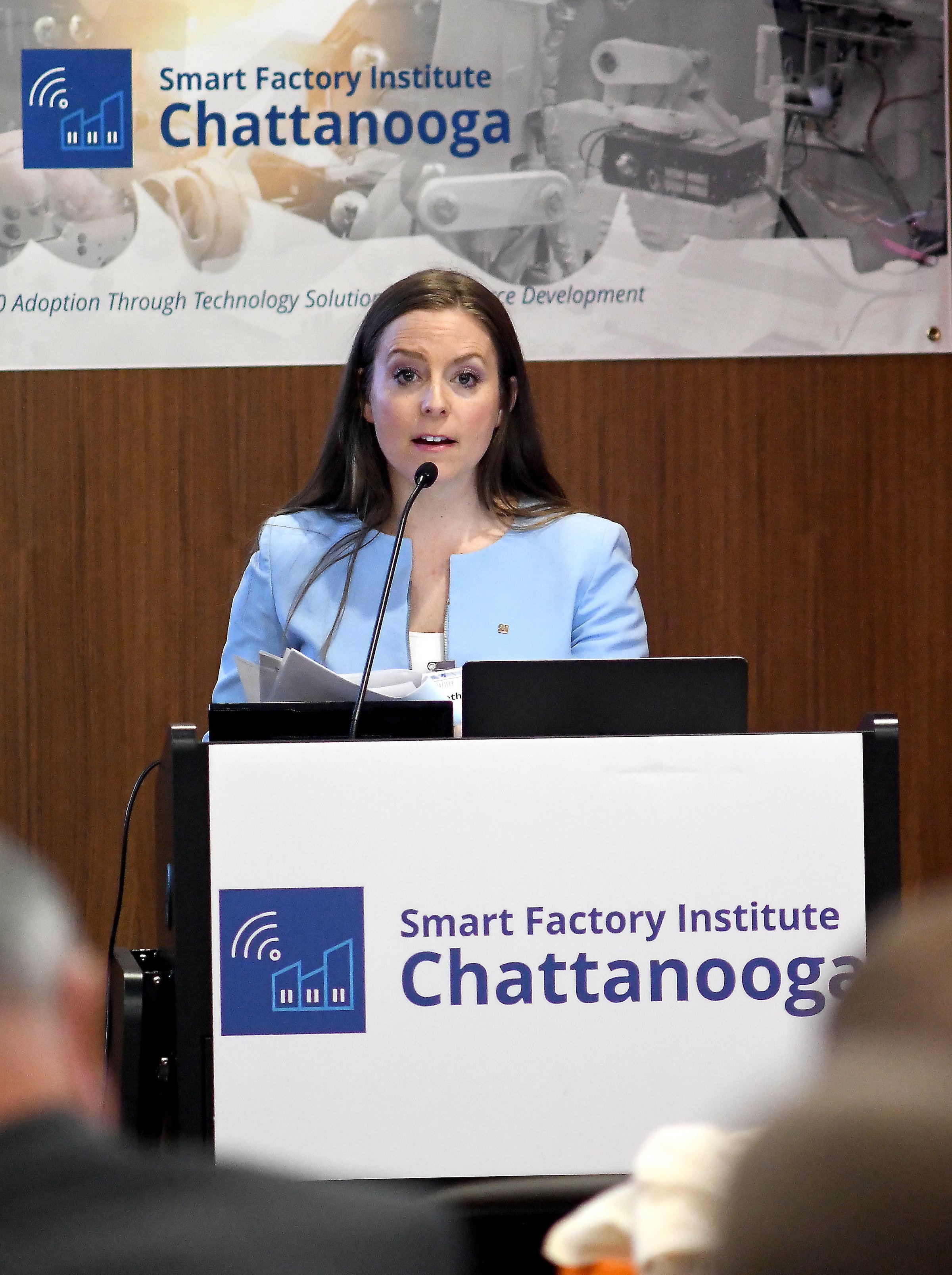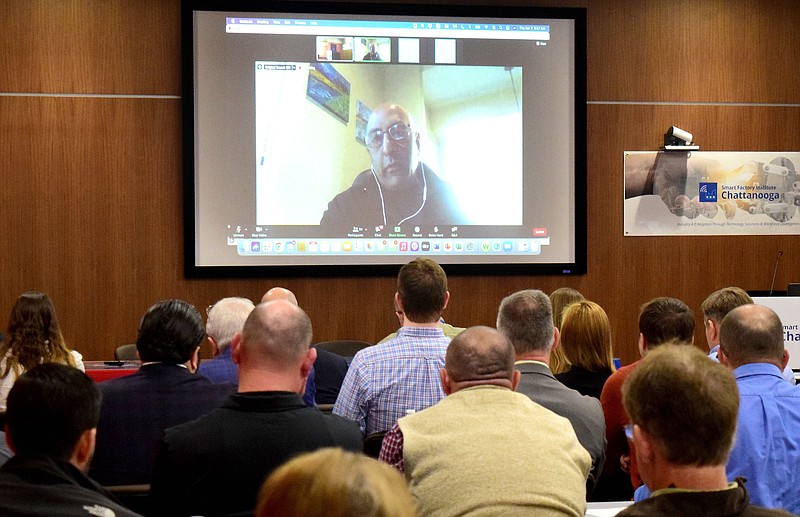Charging speeds for electric vehicles will only quicken, and more of the chargers will pop up on Tennessee's major highways as battery-powered cars move into the mainstream, officials said Thursday.
Drew Frye, the Tennessee Valley Authority's manager of electric vehicle programs, said plans are underway to place direct current, or DC, fast chargers about every 50 miles on Tennessee's interstates and major highways.
"It's building a cohesive network," Frye said at the daylong Global EV Battery Innovations Conference in Chattanooga presented by the city's Smart Factory Institute.
But while DC fast units can now charge a vehicle's battery to 80% in about 20 minutes, Frye predicted that motorists will only use them about 10% of the time.
About 80% of charging will take place using slower methods inside drivers' garages at night, he said. Some 10% of charging will occur around the city and the rest on the major corridors, Frye said.
Because so much recharging will be done in the home, he said he doesn't believe a one-to-one replacement of EV chargers to gasoline pumps is needed.
Alexa Voytek, the Tennessee Department of Environment and Conservation's energy programs administrator, said at the conference that recharging at home will cost motorists less money than using the DC chargers.
Still, she expected there will be an increase in the number of chargers at workplaces. Apartment dwellers, for example, may not have access to home units.
On Thursday, EPB officials said that new, free EV charging stations will be provided on the first floor of the utility's parking garage in downtown Chattanooga.
EPB is offering 13 charging spaces at the garage that has an entrance at the back of the building on 10th Street between Broad Street and M.L. King Boulevard. According to EPB, the public must pay to park, but the charging stations are free. Parking starts at $1 with a daily maximum of $8. Also, three more free EV charging stations are located on the deck's roof, according to the utility.
David Wade, EPB's president and chief executive, said EVs can charge at home for about a third of the cost of gas for the same miles. Also, maintenance costs are lower on battery-powered vehicles, he said.
"EVs offer many benefits for both our individual customers and our community as a whole," he said in a statement.
Frye said he expects EVs will turn into backup generators for homes when electricity is interrupted.
"I see EVs not just taking power but providing power," he said.
Jeff Cohen, vice president of sales at DC fast charger maker Tritium Technologies, said he expects battery recharging speeds to climb.
"It's about convenience. Look for a lot of creativity," said Cohen, whose company revealed in February plans for a new plant in Lebanon, Tennessee, employing more than 500 people to produce more than 10,000 DC fast charger units per year.
He added that truck drivers may have different needs than typical motorists. They'll need fast chargers at places such as truck stops but also at locations where they're picking up containers, Cohen said.
"It's a different business model," he said.
Dennis Gardner, western regional sales manager for charging port and plug maker Phoenix Contact, said the world is shifting to EVs and a goal is to see charging comparable to filling up at a gas station.
He said the fastest chargers are "almost like a gas pump on steroids."
Elizabeth Hammitt, EPB's director of residential energy & environmental solutions, said studies show 60 or more EV and hybrid model cars will be on the road by 2023. By 2030, EVs will be 30% of all new car sales, she said in a statement. By 2040, that figure is slated to go to 70% of new sales, Hammitt said.
Contact Mike Pare at mpare@timesfreepress.com or 423-757-6318. Follow him on Twitter @MikePareTFP.
 Staff Photo by Robin Rudd / Elizabeth Hammitt, EPB director of residential energy and environmental solutions, speaks Thursday, April 7, 2022, at the Global EV Battery Innovations Conference presented by the Smart Factory Institute at the Tennessee Department of Transportation's Bob Brown Region 2 Administration Building on Volkswagen Drive.
Staff Photo by Robin Rudd / Elizabeth Hammitt, EPB director of residential energy and environmental solutions, speaks Thursday, April 7, 2022, at the Global EV Battery Innovations Conference presented by the Smart Factory Institute at the Tennessee Department of Transportation's Bob Brown Region 2 Administration Building on Volkswagen Drive.